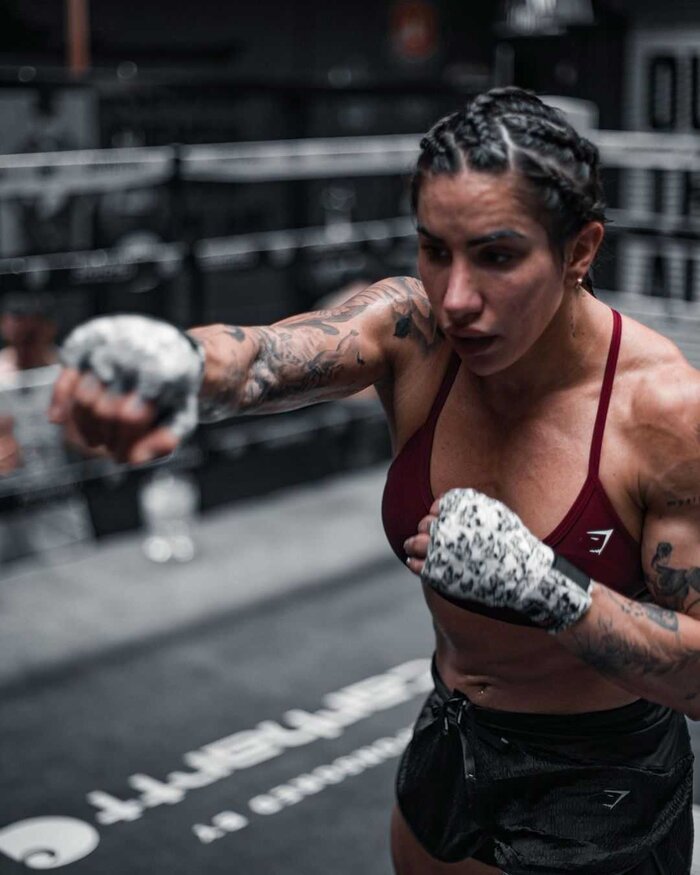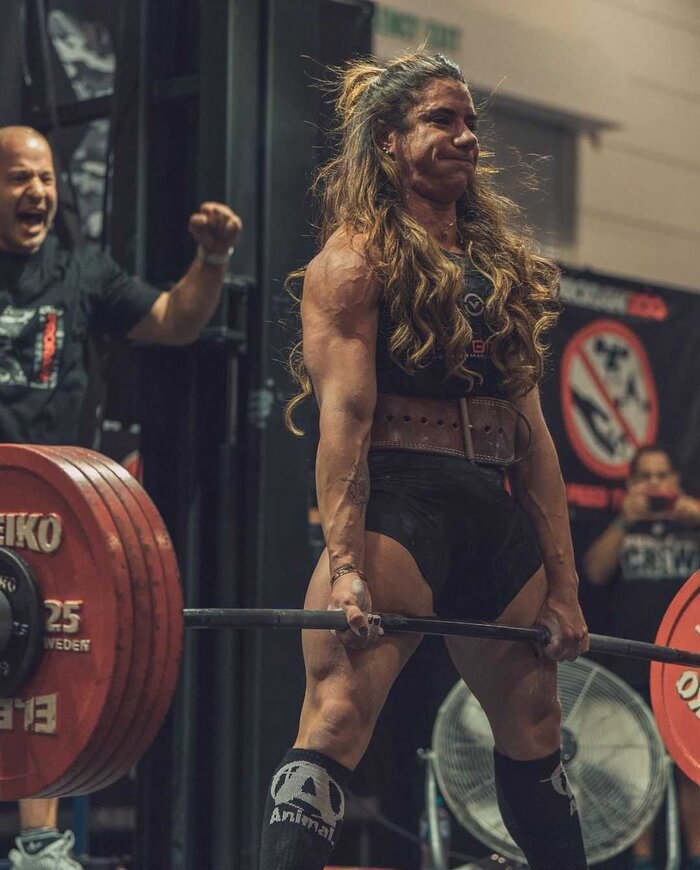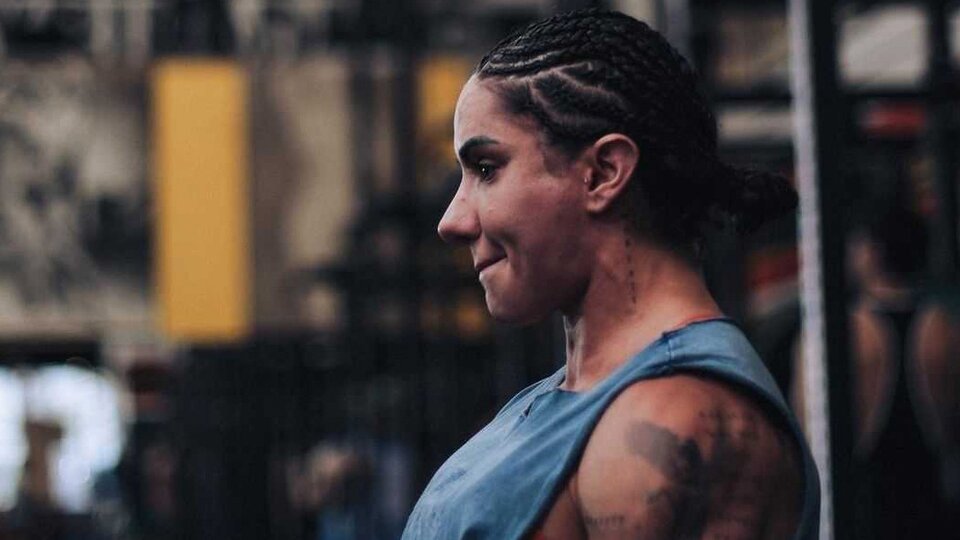Products You May Like
Stefi Cohen has been around the fitness world for a little bit of time now. She first gained attention through the powerlifting world – capturing 25 world records while competing. She is the definition of strong with numbers like a 545 lb deadlift (at 120lbs), 507 lb squat, and 242 lb bench press. If that wasn’t hard enough, she now is a professional boxer climbing through the ranks and a Doctor of Physical Therapy. While she is an absolute beast from a training perspective, her biggest passion is educating and bringing a no BS evidence based view of all things nutrition and training.
We had a chance to sit down and discuss how Stefi’s fitness journey began.
Q: Tell us who you are and what you do in one sentence? GO!
A: My name is Stefi Cohen, and I am a professional powerlifter, professional boxer, and Doctor of Physical Therapy.
Q: When and where did your fitness journey begin?
A: It all started with soccer throughout my childhood. I played on the national soccer team until I was 18. I then came over to the states where I started with crossfit. That was my gateway into iron sports. From there, I went into Olympic weightlifting and then Powerlifting.

Q: What got you hooked? What was your pivotal moment that made you think “I can do this?”
A: For me, it was finding a coach and a group of people that I really enjoyed spending time with. It kept me coming back for more, gave me a sense of belonging, and enjoyed being with like minded people. Having a coach alone that believes in you and wants you to succeed is very rewarding and helps you believe in yourself.
Q: What’s your movement of choice?
A: Deadlift. I think that suits me, fits me based on body proportion, and has always come naturally. Before powerlifting, when I was focused on Olympic Weightlifting, my conventional deadlift was around 250 lbs. However, I tried sumo deadlifting and I topped out at 315. I realized I might have something special and easier for me to succeed at which is why I moved to powerlifting.
Q: What’s the difference between working out and training?
A: Training has planning, strategy and organization. It involves paying attention to variables like reps, sets, and frequency of training while making sure it all aligns with the goals you have.
Working out involves getting your heart rate up and going to the gym whether it’s every day or every few just for the purpose of improving your health.
Q: How does training benefit you physically, mentally, emotionally?
A: I’ve always been pretty open about dealing with anxiety and panic disorders since I was a kid. Sports and training have always been my escape. It’s just a safe place that always makes me feel better afterwards. Physical activity emotionally, mentally, and psychologically have always been at the top of my needs. Training also makes me feel capable and independent which is something I’ve always enjoyed.
Q: Tell us about your routine. Training regime, nutrition and fueling, recovery, etc.
A: My training is different now compared to when I was lifting full time for powerlifting. Right now, I work out 6 times a week. Monday and Wednesday, I spar in the mornings and then do track sprints or interval training in the afternoon. Tuesday and Thursday, I complete strength training in the morning, specific boxing drills a couple hours later, and then a moderate distance (3-5 miles) in the afternoon. Friday, I just spar mainly, and Saturday, I do a long run (6-8 miles) in the mountains. I like to get outside the gym environment that day.
Recovery is really important with my current training. I have weekly 1 ½ hour soft tissue massages, a contrast therapy combo of sauna and cold baths 3-4 times a week, and 1-2 hyperbaric oxygen chamber sessions a week.
When it comes to nutrition, I’m not very strict with my diet. Over the years, I have adopted a pattern of eating that makes me feel good because I tracked my macros and calories for so long. Ultimately, I just try to eat the same foods on rotation consistently that I know fuels my workouts, aids my recovery, makes me feel good, and helps me maintain my body composition.

Q: Tell us about your supplement routine.
A: My supplement routine is pretty specific, but I only take the supplements I need. I have my blood work done every 4-6 months and based on the results, I get my supplement recommendations from a professional. Usually the supplements I take surround metabolic support and include: beet powder, creatine, beta-alanine, B6, vitamin D, collagen, magnesium, and many others. I believe that not having a solid grasp on your own health and taking supplements is a waste of time. You want to check the basics first such as sleep, hygiene, nutrition, stress management, and recovery. Then, you can find supplements that optimize your health from there.
Q: What piece of advice would you give someone who’s just starting their fitness journey?
A: Find a type of workout or routine that you genuinely enjoy doing. Make sure it also has meaning. You’re more likely to stick to a workout routine if you enjoy it and have meaning to why you are doing it.
Q: What does being strong mean to you?
A: It means being able to overcome physical and mental challenges as they happen. Lifting weights and trying to test strength as much as possible makes you physically stronger, but it also tests mental strength.
Stay tuned for more athlete profiles throughout the year. Do you have a story worth sharing? Email social@bodybuilding.com for profile submissions.
